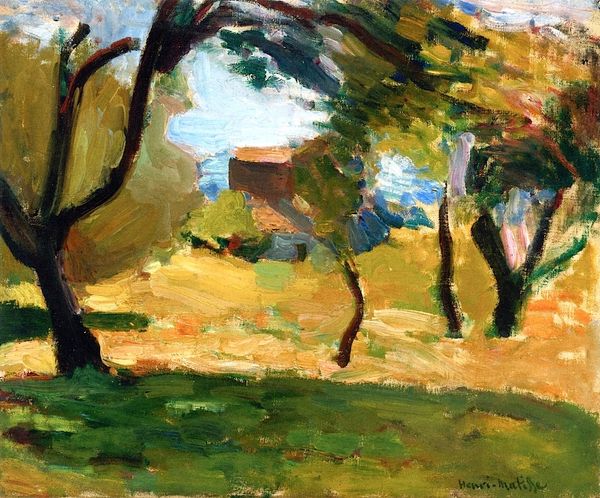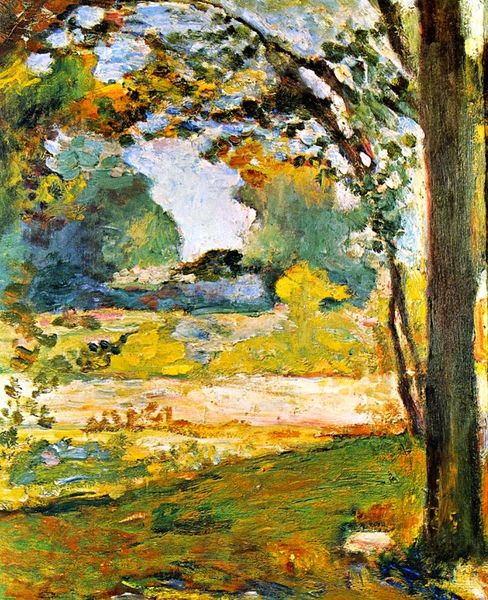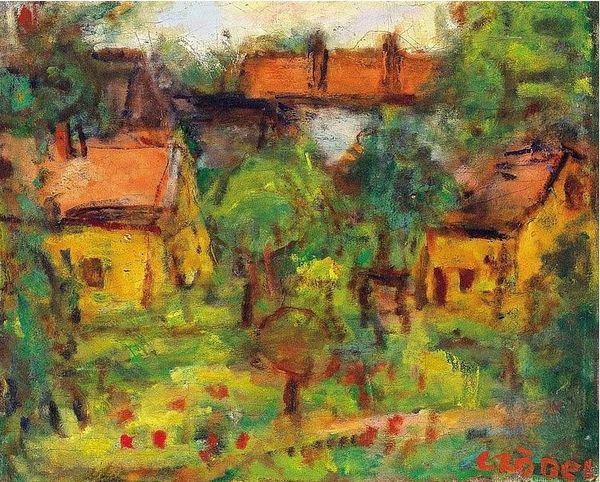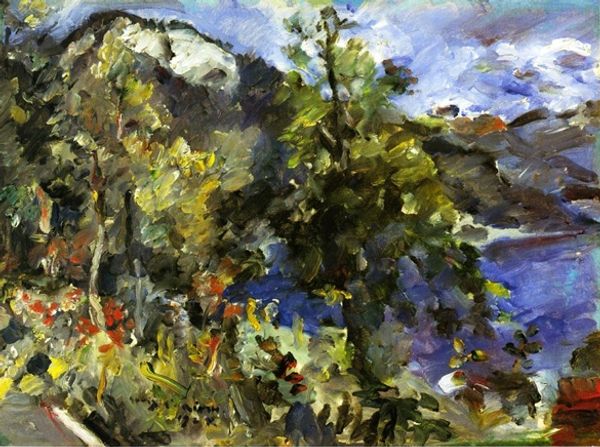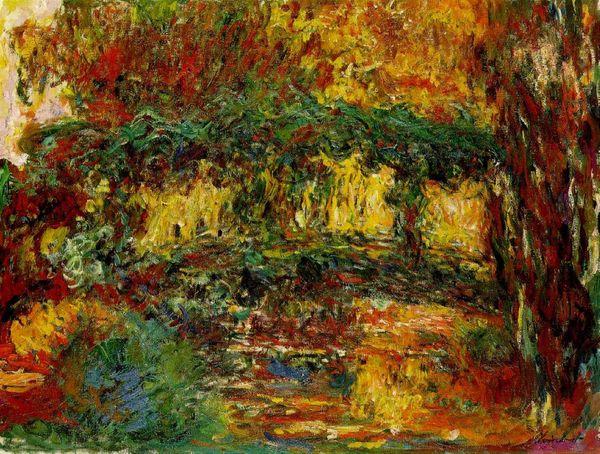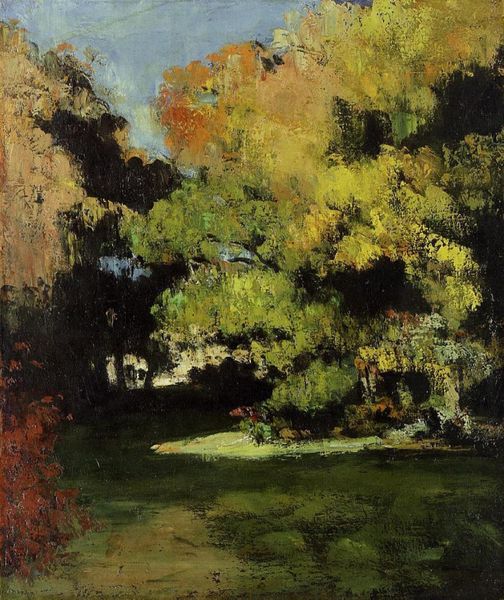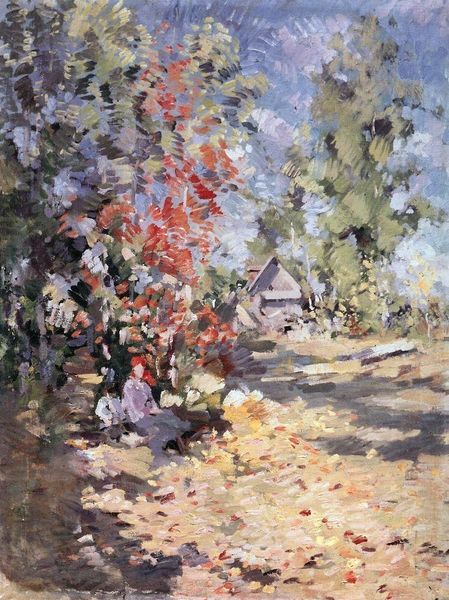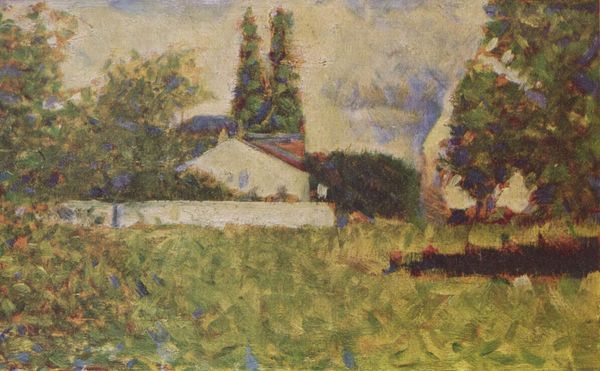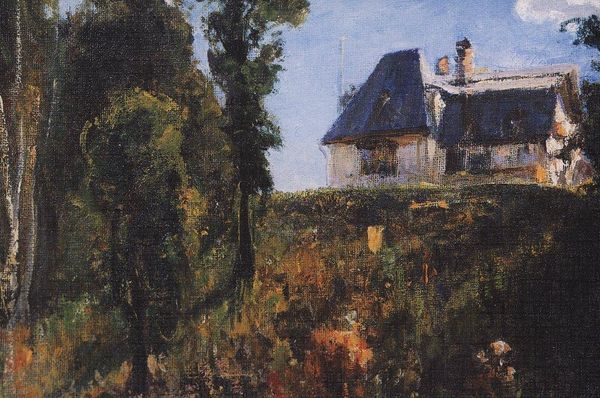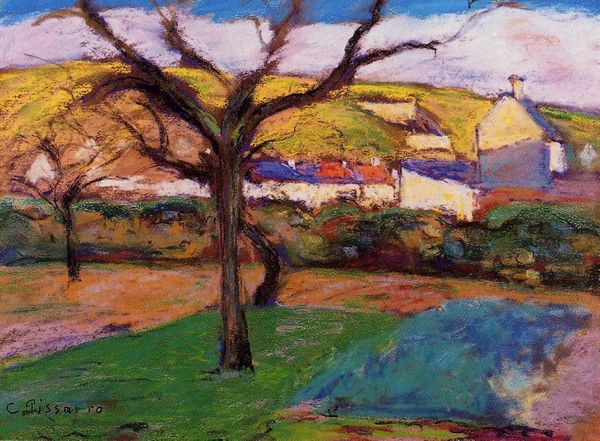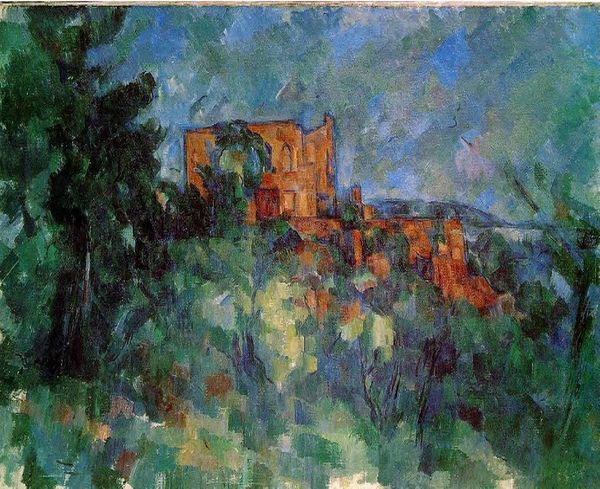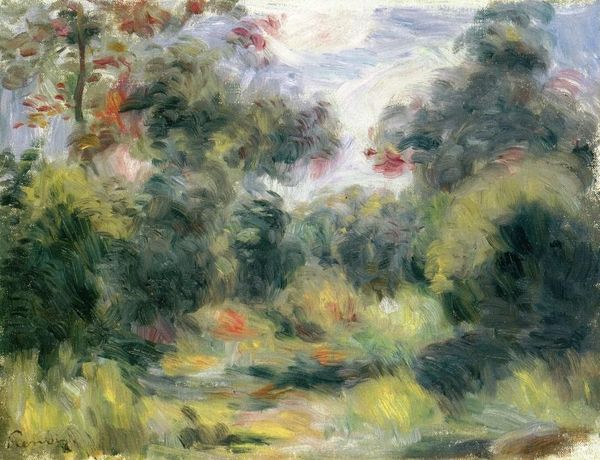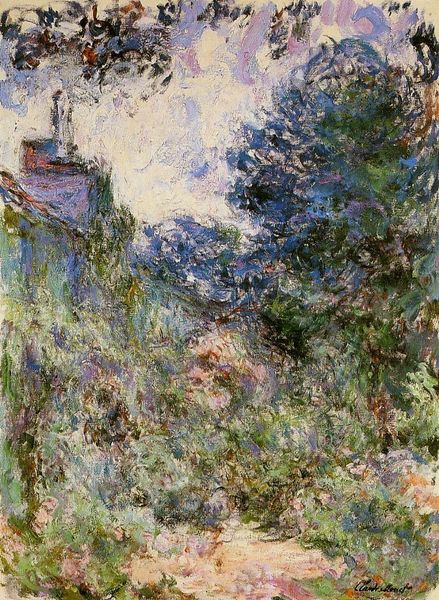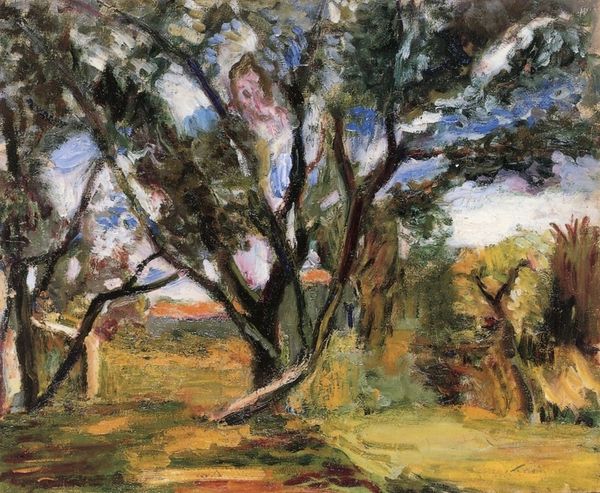
Copyright: Public domain US
Curator: Looking at Henri Matisse’s "Landscape, Corsica" from 1898, rendered with oil paint, I am struck by its almost vibrating quality. Do you feel that too? Editor: Absolutely. It feels very grounded, but also quite…unsettled. The strokes are energetic, the palette, while natural, feels almost artificially bright. There's a strange tension here, almost like the landscape itself is alive. Curator: Indeed. It's interesting to note the historical moment here; Matisse is on the cusp of discovering Fauvism. Corsica represented a significant departure, moving him towards these expressive uses of color he later became famous for. We also cannot overlook that he would have likely been painting "en plein air" for a painting such as this. Editor: It certainly reads as a study of place. And there’s a visual echo, if you will: the trees on the left, framing the architecture in the center, against the distant buildings… a symbol of stability almost, if you focus on these constructed forms rather than brushstroke itself, contrasting against the more wild environment suggested in the scene.. Is this the comfort and security of home, or confinement? Curator: That tension, I believe, is part of its power. Matisse isn't just depicting Corsica, he’s working through these Post-Impressionist visual styles to express something beyond pure representation. His peers struggled similarly with representing modernity—but from a different political point of view. In many ways, he also continued with the legacy of making his figures, objects, and places of the world into symbols that are deeply emotional. Editor: And, considering that symbols become embedded in a culture, could this represent some deeper, collective feeling present in the late 1890s as French culture and government continued to transform and face turmoil, for instance with the ongoing Dreyfus Affair that ripped through society during these years? Curator: That's a powerful point. We view art differently depending on current societal happenings and beliefs. Editor: Which underscores the beauty of looking closely. To recognize that landscapes – both painted and literal – reflect our feelings about society as a whole.
Comments
No comments
Be the first to comment and join the conversation on the ultimate creative platform.
